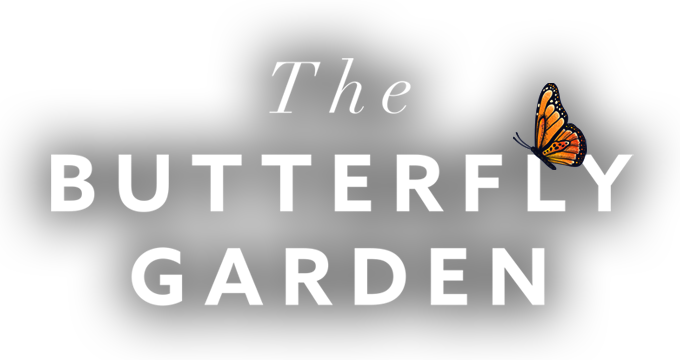The Butterfly Garden
![]()
CHAPTER 10
Nancy Carroll was heading their way from her kitchen, the steaming teapot teetering on the tray she carried. This new tea was an experiment, she said—jasmine green. And though a coffee man himself, Hayden Kayne had found its florid, bitter taste to be strangely invigorating. “Would you two like a bit more?” Nancy asked.
“Oh, no thanks, Miss Carroll.” Karyn Johnston grinned. “One more bite or sip, and I’ll have to buy all new clothes!”
“Let me help you with that, dear,” Hayden said, getting up to take the teapot and usher Nancy back to the table.
Nancy settled heavily in her seat and took up her cup once more. “So,” she said, “I can’t tell you how relieved I am that this whole thing was none of my fault…”
Hayden smiled. “Your mother’s tea leaves were indeed tinged with the poison,” he said. “But so was the water pitcher in Marian’s room. Not to mention the whiskey decanter in William’s bedroom, and the bottle of mouthwash they found in his medicine cabinet. As we now know, it was all the handiwork of Claude Thibodeaux. At least he was careful not to tamper with things that might have harmed Karyn or Letty.”
“It’s only by God’s grace that neither of us sampled that tea ourselves!” Karyn said.
“And you say Marian knew it was Claude who had killed William?” Nancy asked.
“It’s possible, based on that note she had hidden away,” Karyn replied. “Though if she did, she obviously had no idea how he’d done it…”
Nancy shook her head. “And never will, poor thing.”
Hayden sipped his tea, silent. He’d puzzled over it endlessly. And he thought he had it figured out, what Marian had known before she died. She’d known what Claude wanted—the property that had been stolen from his grandfather. Most likely she’d known about that even before William was killed. Perhaps to mollify Claude, perhaps to soothe her own soul, she’d offered the gardener shelter, a place to stay after Katrina. More than likely, she’d promised to name Claude a trustee, should William die before she did. But something had happened. Perhaps Claude’s threats had hardened her naturally generous heart. Perhaps she’d suspected that Claude had killed William to get what he wanted. In any event, she’d changed her mind about the trust, instead using it to repay an old debt—to Karyn. That decision had spelled her doom.
There was just one thing that Hayden might never know: How much had Marian really known about her husband?
For Hayden knew William now, better than he ever had when the man was alive. Better than most, perhaps. A gay man with no interest in women, William had managed to stay well clear of his childhood home until the elder Watson was completely out of the picture. But when he was finally summoned home to run his father’s company, he’d had to face the music. He’d no doubt dreaded the close examination that he, a single man of marriageable age, would receive upon his return to New Orleans—not only by the community at large but by his own mother, a fastidious social climber who would never accept him for who he was. And so he’d found a bride in Chicago, someone to shield him from suspicion. Marian, newly pregnant by a man she’d discovered was married, had been ripe for the picking.
True, the Watsons’ decades-long marriage might once have been based on devotion of a sort. But it had most likely been rooted in deceit—a deceit that had continued for years.
“Cat got your tongue, Hayden?” Karyn asked.
Hayden grimaced. “Not a good metaphor, given the circumstances.”
Nancy gazed out the side window of her little parlor. “It’s a shame that the poison came from the garden.”
Hayden nodded. “Madeleine Barrington was correct in identifying it as a plant toxin, but she was wrong about the source. The culprit here is only a chemical relative of the toxin found in the foxglove. Based on what they found in Claude’s little chemical laboratory, the poison in this case is something called a cardenolide—a milkweed toxin.”
“It seems Claude was experimenting with quite a few species not native to this area,” Karyn said. “Most recently, he’d taken to growing one of the more toxic species, something called the wooly pod milkweed.”
“So sad,” Nancy said. “Those have such a pretty purple bloom in the summer…”
“I read up on it,” Karyn said. “Apparently, monarch caterpillars love the stuff. They’ve developed a natural adaptation that allows them to eat all the milkweed they want, despite the toxin it contains. And the ingestion of all that toxin serves them well. It renders them poisonous to whatever might try to eat them…”
Nancy sank back in her chair. “That’s all well and good for the monarchs, I suppose. But I can’t imagine we’ll be planting another butterfly garden around here in the near future.”
“I can understand the aversion, given what’s happened,” Karyn replied. “Though milkweed is relatively harmless to humans so long as somebody isn’t intentionally concentrating their toxin like Claude did!”
Hayden reached over to pat Nancy’s shoulder. “Don’t worry,” he said. “My friend Richard knows a fine gardener who would love to plant you something different. Roses, perhaps? Or vegetables? I’ve used this gardener friend of his, and I can vouch for his skills…”
“Yes,” Nancy said. “Yes, Hayden, that would be wonderful.” She placed her cup firmly back onto its saucer. “We must move on, and a rose garden sounds like just the thing. But…”
“Yes?” Hayden asked.
“What will become of the Watson property now? Are you going to be able to sell it?”
Hayden picked up another blueberry scone from the plate at the center of the table, allowing its sweet aroma to dull his rueful thoughts. “If Claude Thibodeaux had believed in the law, if he’d just come to me before resorting to murder, I could have helped him. Now…It’ll take some doing, but I should at least be able to sell the property.”
“But according to what you discovered, Claude owns it,” Nancy said. “Do you think he’ll agree to a sale?”
Hayden sighed. “It’s true. No doubt the court will find that Claude is the rightful owner. But I doubt he’ll ever be able to live there. And I’m sure he’ll soon see the value of cashing out, if only to make his prison life more bearable.”
“It’s amazing how Hayden figured it all out,” Karyn said, casting Hayden an admiring glance. “Apparently, Claude Thibodeaux’s grandfather Casimir was defrauded by William’s father Henry, way back in 1933. Casimir thought he was signing a loan agreement, but Henry illegally filed it as a conveyance of property.”
“No doubt it was a story that old Casimir had recounted many times over the years,” Hayden said. “The story of how the well-to-do Thibodeaux family lost their beautiful home to a scam artist who took it for his own. I daresay it weighed heavily on our man Claude.”
Nancy sank back in her chair. “My Lord,” she said, “one thinks one knows a person…”
Hayden smiled. Nancy would never know the half of it. Not that in the wake of the Great Depression, Henry Watson had built his real estate empire almost entirely on the strong-armed or fraudulent acquisition of properties from debt-ridden small businessmen like Casimir Thibodeaux. And certainly not that William Watson was nowhere near the man that Nancy had always imagined him to be.
But Hayden was glad now, that he knew Nancy. He placed his hand atop hers on the table. “I don’t know how we can thank you enough, Nancy,” he said. “You’re a true heroine!”
“He’s right,” Karyn beamed. “I owe my life to you…”
Nancy blushed. “You can thank my mother for training me,” she said. “Just hand that woman a frying pan and you could forget about household rodents!”
Karyn winced. “Though I know that the feline species is a sensitive topic right now, I’d rather employ a cat for work like that…”
Hayden pushed back from the table. “Well, ladies, I need to take my leave. Believe it or not, I have a new client in Horton Willoughby. I’m not sure what the issue is, but he’ll be filling me in all too soon.”
Karyn stood up. “Will you be going home first?” she asked.
“Yes, I’ll need to pick up my briefcase and call a cab…”
“I’ll come along then,” Karyn said. “I have my finals tomorrow. I guess I owe it to Marian to finish up my nursing classes.” She turned once more to Nancy. “May I come by after?” she said.
“Please do!” Teetering to her feet, Nancy saw them to the door, waving hesitantly as they made their way down the front stairs.
As they retraced their steps toward St. Charles, Hayden stole a glance at Karyn. Her fair hair was tied loosely back from her face, a wayward strand fluttering across her cheek. Her blue eyes, focused ahead, reflected the pearlescent sky. Suddenly she pointed to a pair of butterflies, flitting aimlessly nearby. “I guess they’re looking for a new home now,” she said.
Hayden watched the monarchs dance, the spring sun illuminating the golden panes of their wings—one plunging ahead, diving, then circling, allowing the other to overtake it. “They’ll do fine,” he replied. “We all get uprooted from time to time.”
Karyn stopped, turning back toward the Carroll house. “She’s lonely, isn’t she?” she asked.
“Nancy?” Hayden thought about Nancy Carroll. He’d known her for so many years, though not nearly so well as he should have. He still remembered her trusted maid Patsy Lee, her old gardener Chauncey Turner—both so many miles away now. “We all are,” he said. “Lonely.” He watched Karyn’s expression, waited for the now familiar dawn of understanding to light her features. But she only continued looking at Nancy’s house, its ornate railings covered with a grimy veneer of chipped white paint.
Embarrassed, Hayden averted his gaze. Out on St. Charles, a group of kids in black and white school uniforms were horsing around at the streetcar stop. Some held instrument cases, some only their shining brass instruments—trumpets, trombones, saxophones, their dull gold surfaces glistening in the sun. He remembered the hymn he’d heard played at Marian’s service, its soft, melancholy cadence—Just a Closer Walk with Thee. He liked this—walking next to Karyn. “I’ll make sure Richard sets Nancy up with some new help,” he said. “We’ll get her going again.”
Karyn looked at him then. “You like to take care of people, don’t you, Hayden?”
Hayden turned to her. He drew in a breath. Gently, he touched her hand. “I’d take care of you too,” he said. “if you’d let me.”
She blushed—as he’d known she would. “I’m not sure you’re up to it,” she said. “I’m quite a handful.”
Speechless, he stared at her. Then he felt something bubbling up from deep within him—from a place he’d forgotten was there. A smile. A chuckle. A laugh.
A hurt look clouded Karyn’s face. “Why are you laughing at me? You never take me seriously…”
“Karyn,” Hayden said. “I do take you seriously. Seriously enough to know that you’re far from a handful. On the contrary…” But he couldn’t finish. He could expound at length on the vagaries of contract and property law. He could hold forth for hours on the newly found philosophy of forgiveness and renewal that had guided him since the floods. But he couldn’t possibly say the things he needed to say now—things he’d never said to any woman.
Karyn grasped his arm, and he felt the sensation of her touch run through him. “Really, Hayden,” she said. “I’m thinking of going back to Chicago. I like the seasons…”
“Chicago?” Hayden looked down at the pavement, hoping his eyes wouldn’t betray the feeling in his gut, that familiar feeling of losing his way that she always seemed to elicit.
Karyn sought his gaze. “I don’t belong here,” she said. “I guess I’m like those butterflies, still looking for somewhere to belong.”
“But…” Hayden’s mind did what it always did, trying desperately to retreat to logic. But there was no logic to the way he felt.
“I’m sorry, Hayden.” Karyn’s voice was soft now, quavering. “I don’t mean to disparage this place. I know you must love it—you’ve lived here all your life. But as for me…I feel as though I’ve gained a family, only to lose it again. I feel as though I’m sinking…”
A soft breeze stirred, and now the butterflies were spiraling away from them. Hayden looked up at the blue sky—at the live oaks, their fresh coat of tender green leaves shivering like wings. Then he took Karyn’s hands in his, looked into her eyes. He could get lost, he knew, in those eyes…He swallowed hard. He would get lost.
“Karyn,” he said. “I’m sinking too.” Letting go, he spread his arms wide, his fingers unfolding toward the pot-holed street, the stooped houses, the assembly of musical children, still waiting for the late streetcar. “We’re all sinking. That’s what New Orleans is…a place that’s constantly sinking. But it always rises again. And it’s that ability to rise back up, to be reborn—like the butterflies. That’s what binds us all here.”
Karyn raised her hand to shelter her eyes from the sun. She smiled, a crooked smile.
Hayden steeled himself. “Stay,” he said. “Please, stay. Here, you can make a difference.”
He had to strain to hear what she said next. “Counsellor,” she murmured, “on this matter, I will most certainly consider your argument.”
***
Nancy Carroll stood on her front stoop, watching Hayden Kayne and Karyn Johnston walk away. Hayden was indeed a shrewd one. He’d corroborated Claude Thibodeaux’s story about the property: the story that Claude himself had told her on the day before her tea party with Madeline Barrington and Estelle Willoughby—the day when she’d caught him unawares in his little “laboratory.” On that day, Claude had told her everything—more than she’d ever wanted to know.
Claude had made William Watson’s death seem like a just retribution. He’d appealed to Nancy’s sense of pity over the constant injustices that the man and his father had perpetrated on him and his family. His assertion that William had preferred men had been jarring, but reassuring; at least it explained why Nancy had never been successful in winning William’s affections.
And of course Claude had had to finish the job by offing Marian. As Claude so rightfully contended, Marian never should have been there in the first place. In the end, Marian had been a fool—that silly woman had promised Claude she’d put him on the trust, only to renege. She’d had no idea of the danger she’d exposed herself to.
But then, as Nancy had stood transfixed in that squalid little shed of his, Claude had finished his diatribe with a threat. Since he’d used the tea that she herself had provided to effect Marian’s murder, couldn’t she be considered an accomplice? He wasn’t much for brains. But he’d been clever, that Claude Thibodeaux.
They’d struck a deal. Claude had promised to come forward with his copies of the land records, to set things straight so that he could finally and legally take possession of the Watson home. For her part, Nancy had kept the silence she’d promised him, exacting in return only a reduced fee for his gardening services.
But as the days had gone by, she’d realized that Claude had no intention of following through on his part of the bargain; he and his family had already suffered too much at the hands of the courts, and trust in the legal system just wasn’t in his veins. In fact, she’d realized with increasing alarm that she had no idea what he planned to do; what was in his veins, it seemed, was quite a bit of alcohol. And to make matters worse, she’d become aware that her continued silence might render her an accessory after the fact. She’d have to tell someone. But who? She’d decided on Madeleine Barrington—though she’d dreaded the look she imagined on that boorish woman’s face, she would confess all to her at the Garden Club party.
In the end, Claude had saved her. He’d gone completely off the rails, attacking poor Karyn Johnston. Enough was enough—she’d had no choice but to club him. Now, she liked the odds. If he had any word at all, it would be his word against hers.
She looked to her left, at the abandoned Watson home, its proud entryway and grilled porch still wrapped with police tape. Perhaps she could purchase it at a discount…


